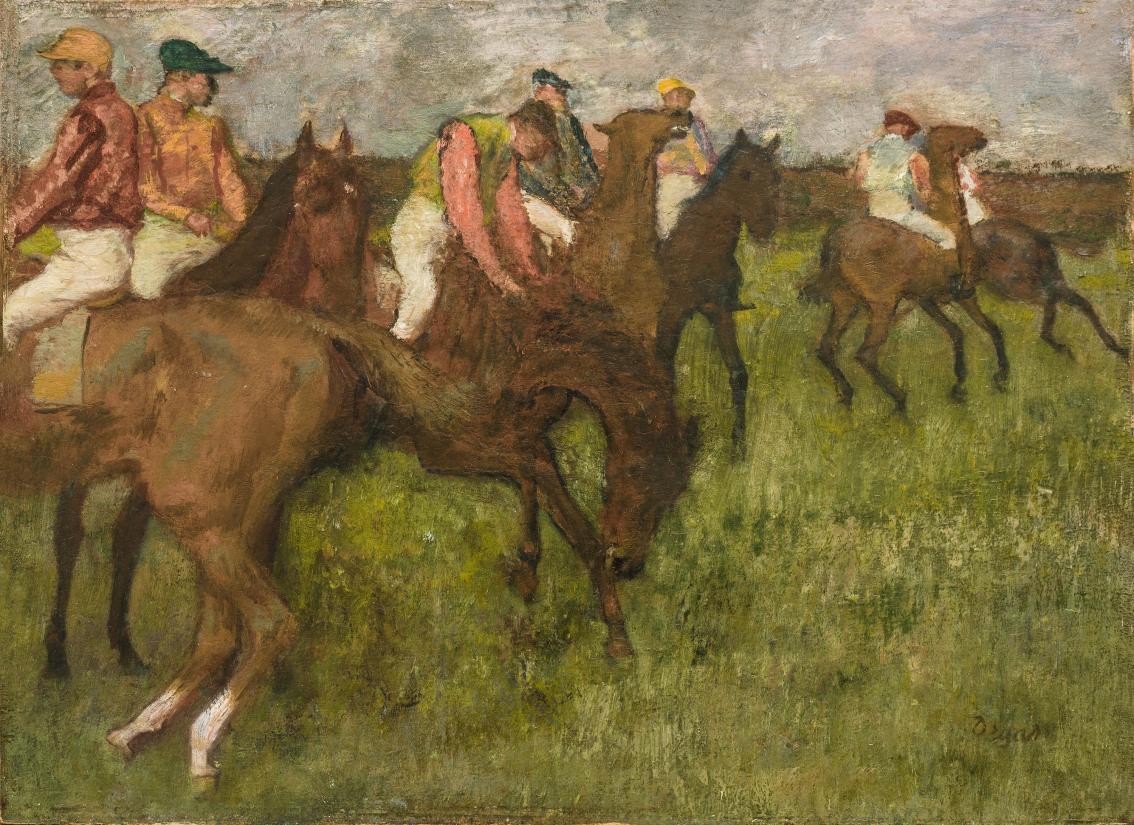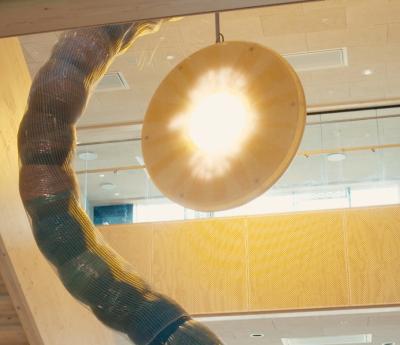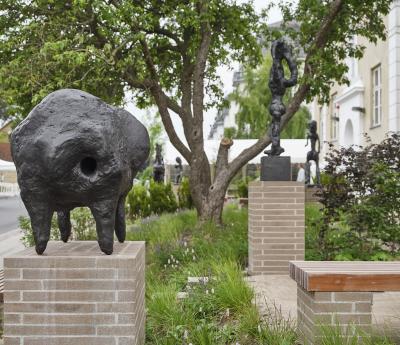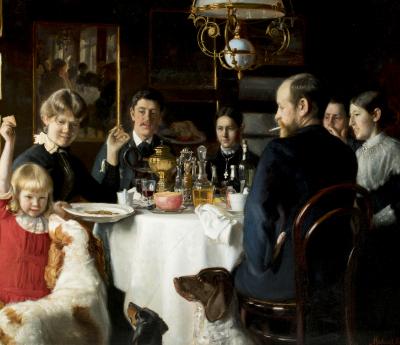In cooperation with the Danish foundation Augustinus Fonden, the New Carlsberg Foundation has donated the painting ‘Jockeys’ (1886-1890) to the Glyptotek. The donation strengthens the museum’s exquisite collection of Edgar Degas’s works and introduces an important side of the French artist’s oeuvre to a Danish audience. ‘Jockeys’ is thus the first painting owned by a Danish museum to portray one of Degas’s favourite and most challenging motifs: race horses.
Psychological breaking point
Like Degas’s famous portrayals of young ballet dancers, it is the moment just before the action that captures the artist’s imagination. As in his paintings of dancers warming up or practicing, in ‘Jockeys’, he achieves a high degree of intensity by capturing horses and riders just before the race. On the small canvas (26.1 x 38.5 cm), Degas condenses the motif and its story about excitement and nervousness and brings it to its psychological breaking point.
‘Jockeys’ features the characteristics that make Degas a pioneer of modern painting: bold cropping, vibrantly textural brush strokes and an almost electric palette. Equine shapes are twisted and turned to fit into place among each other, like jigsaw puzzle pieces, forming a dynamic movement across the surface and bringing motif and matter together in a unity of expression.
The boundaries of impressionism
The Glyptotek’s collection of Degas’s works now numbers five paintings and pastels by the artist and one of only four complete sets of his 74 sculptures in existence today – including his main piece, ‘The little fourteen-year-old dancer’ (1880-81).
‘Degas’s practice makes him unique among the impressionists, and this painting is an outstanding example of his complicated experiments with colour, matter and composition. “Jockeys” brings all the mature Degas’s striving together in one scintillating moment, demonstrating the full reach of the new school of painting. What we see here is the boundary of impressionism towards Matisse, Picasso and the modern expression,’ says the Glyptotek’s director, Flemming Friborg.



